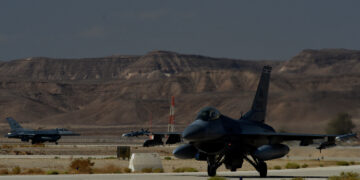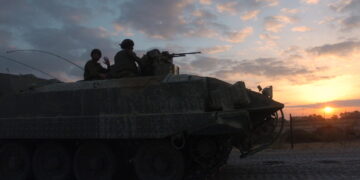February 22, 2019
Leaving 200 U.S. soldiers behind in Syria’s civil war is mission creep, risky, and unjustified
FOR IMMEDIATE RELEASE:
February 22, 2019
Contact: press@defensepriorities.org
WASHINGTON, DC—The White House recently announced the decision to leave 200 U.S. troops in Syria despite President Trump’s recent calls for a complete and swift withdrawal.
In response, Defense Priorities Policy Director Benjamin H. Friedman issued the following statement:
“U.S. forces should be used for achievable missions that protect the American people, not as a tripwire meant to somehow referee Syria’s civil war. Leaving behind 200 U.S. troops isn’t enough to do much other than get the United States entangled in a larger conflict. Zero ground forces is a much safer number for America.
“The three rationales offered by the White House do not justify this open-ended commitment of U.S. ground forces, especially when staying invites disaster.
“Keeping U.S. troops to fight ISIS’ remnants is mission creep toward an Iraq-style, long-term counterinsurgency mission. Other actors in Syria, starting with the Syrian government and the Kurdish forces, are eager to attack ISIS. Defending against anti-American threats does not require ground forces.
“Keeping U.S. troops at al-Tanf to serve as a road block between the Syria-Iraq border seems designed only to annoy Iran or Russia. A small contingent will not significantly affect Iran’s shipments or coerce Russia, but they will risk getting into a conflict with one of those powers, for no obvious reason.
“Keeping U.S. troops to help Turkey create a ‘safe zone’ in northeast Syria makes no sense, given that the Kurds there want to be kept safe from the Turks. The United States’ temporary alignment was based on a shared interest with the Kurds in attacking ISIS; it does not mean we are compelled to agree with all their aims and perpetually back them in their local conflicts. There is every reason to anticipate the Kurds can cut a deal with the Syria government to restore something similar to the pre-war order where they were left in peace without autonomy, and the United States can encourage that.
“The mission to liberate ISIS-held territory is complete. The best course for America is for a full and immediate withdrawal of U.S. soldiers.”
More on Middle East

By Jennifer Kavanagh and Dan Caldwell
July 9, 2025
Events on Syria








